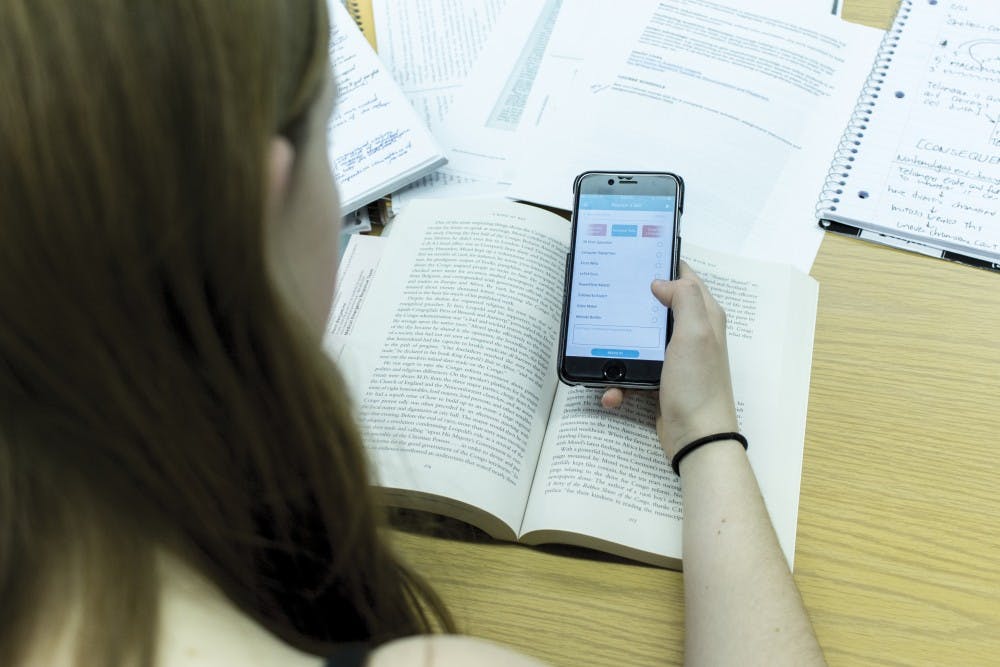It was November of last year when two Jerome Fisher Management & Technology sophomores first came up with the idea for their app, Neevo, which launched this past Thursday.
“We were in Detkin Lab, 11 p.m., it was snowing and we needed someone to come trace our code,” said Yassine Elmandjra, an Engineering and Wharton sophomore, who recalled working on his Electrical and Systems Engineering assignments with his classmate, Engineering and Wharton sophomore Sahil Shah. “We’re in the engineering quad and we know that there are hundreds of computer science majors, probably one like ten feet away from [us], but there’s no way for [us] to contact him.”
The pair saw the potential demand for an application that would enable students to find a peer with a particular skill set and has worked for the past year and a half to bring their idea to life. Another recent startup that has launched at Penn called Quickhelp addresses a similar demand, but is more narrowly focused on tutoring.
Neevo, however, allows people to solicit a variety of skills that can range from ”‘I need someone to fix my line of java code,’ to ‘I need a graphic designer,’ to ‘I need a photographer,’” Elmandjra said.
Neevo divides skills into general life-skills and course-specific expertise. Users, who can both offer and request skills, can search through profiles of people who possess a desired skill and select the one that meets their timeframe and price-point.
Neevo takes a 10 percent cut of all transactions made through the app, but Elmandjra said that’s only enough to cover server costs. The app’s profit potential, he said, is in datamining for information valuable to universities.
Neither Elmandjra nor Shah had prior experience building an app. They knew some basic computer science, but not enough to build the app — instead, they paid a team of programmers in Morocco to develop Neevo.
Elmandjra’s father, who runs a private equity fund in Morocco and has experience with tech start-ups, introduced the Penn students to the team of programmers they hired, and served as a vital mentor throughout Neevo’s creation.
“There wouldn’t be an app without him,” Shah said.
One early user of the app was Shah’s roommate, Wharton junior Anmol Bhansali. Bhansali said he likes the app, and has earned money sharing one of his skills — hookah set up — but hasn’t had luck finding help for one of his higher-level classes.
“One thing that I hope will happen is that Penn really buys into it,” Bhansali added. “At the end of the day, it’s a marketplace. You need buy-in from both sides of the platform.”
One of Bhansali’s favorite aspects of Neevo is the Venmo integration. Shah says that last summer, he and Elmandjra secured this feature by reaching out to the PayPal subsidiary Braintree, which helps developers use PayPal services like Venmo in their apps. Shah believes this is a crucial element because students can be hesitant to put their credit card information into new apps.
Although the app is available for download nation-wide on the App Store, Elmandjra and Shah said that at the moment, their concentration is just at Penn. Moving forward, they hope to expand to other universities.
“For people who are interested in any sort of entrepreneurship, I really believe that now, in college, is the time to do it,” Elmandjra said. “The whole idea of dropping out of school, I’m completely against. This is a learning experience, and you have something to fall back in which is a college degree.”









